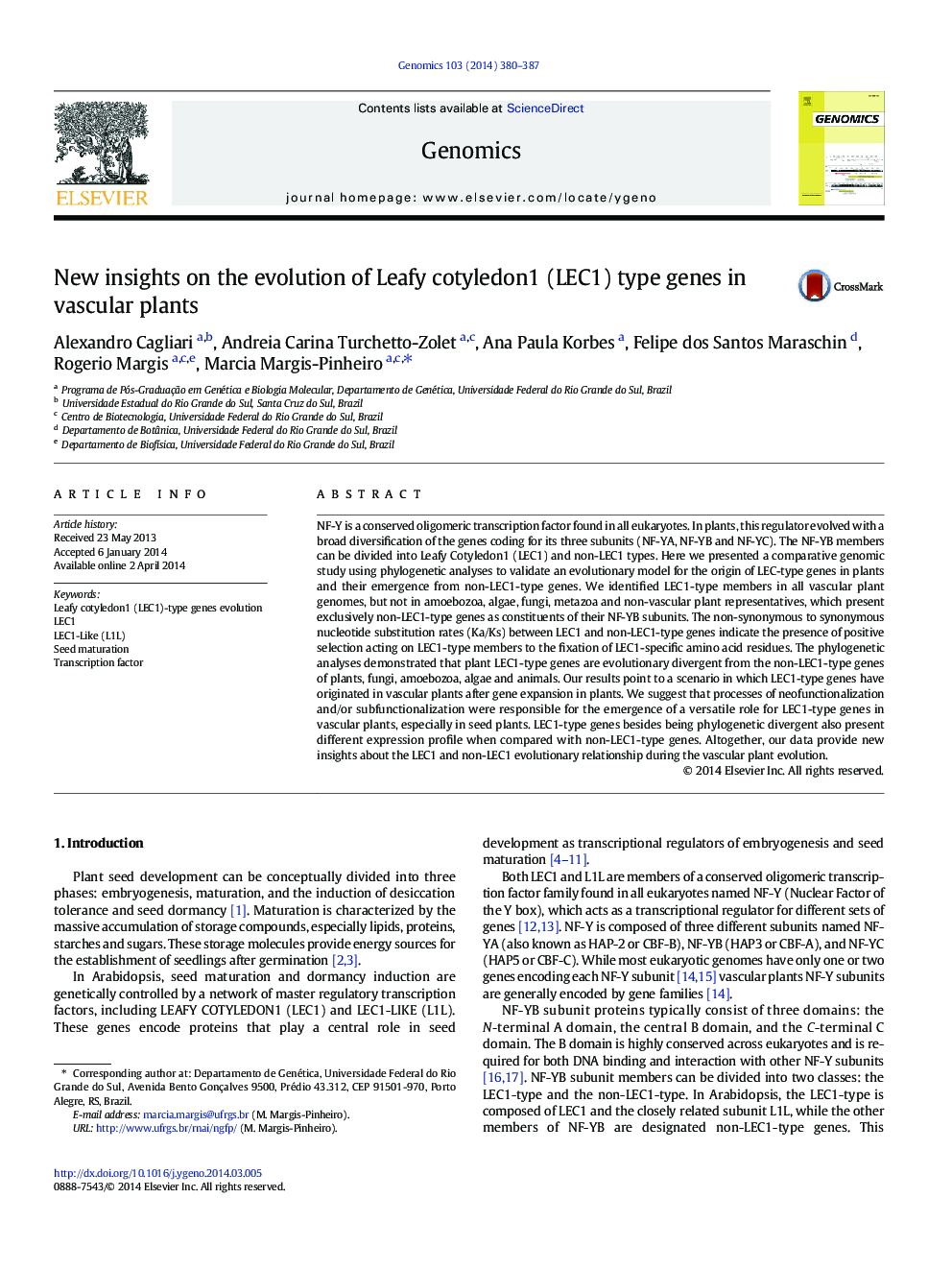| Article ID | Journal | Published Year | Pages | File Type |
|---|---|---|---|---|
| 5907744 | Genomics | 2014 | 8 Pages |
â¢Plant LEC1-type genes are evolutionary divergent from non-LEC1-type genes of plants, fungi, amoebozoa, algae and animals.â¢LEC1-type genes have originated in vascular plants after gene expansion in plants.â¢Neo- and/or subfunctionalization were responsible for emergence of versatile roles for LEC1-type genes in vascular plants.â¢LEC1-type genes are phylogenetic divergent and present different expression profile compared with non-LEC1-type genes.
NF-Y is a conserved oligomeric transcription factor found in all eukaryotes. In plants, this regulator evolved with a broad diversification of the genes coding for its three subunits (NF-YA, NF-YB and NF-YC). The NF-YB members can be divided into Leafy Cotyledon1 (LEC1) and non-LEC1 types. Here we presented a comparative genomic study using phylogenetic analyses to validate an evolutionary model for the origin of LEC-type genes in plants and their emergence from non-LEC1-type genes. We identified LEC1-type members in all vascular plant genomes, but not in amoebozoa, algae, fungi, metazoa and non-vascular plant representatives, which present exclusively non-LEC1-type genes as constituents of their NF-YB subunits. The non-synonymous to synonymous nucleotide substitution rates (Ka/Ks) between LEC1 and non-LEC1-type genes indicate the presence of positive selection acting on LEC1-type members to the fixation of LEC1-specific amino acid residues. The phylogenetic analyses demonstrated that plant LEC1-type genes are evolutionary divergent from the non-LEC1-type genes of plants, fungi, amoebozoa, algae and animals. Our results point to a scenario in which LEC1-type genes have originated in vascular plants after gene expansion in plants. We suggest that processes of neofunctionalization and/or subfunctionalization were responsible for the emergence of a versatile role for LEC1-type genes in vascular plants, especially in seed plants. LEC1-type genes besides being phylogenetic divergent also present different expression profile when compared with non-LEC1-type genes. Altogether, our data provide new insights about the LEC1 and non-LEC1 evolutionary relationship during the vascular plant evolution.
